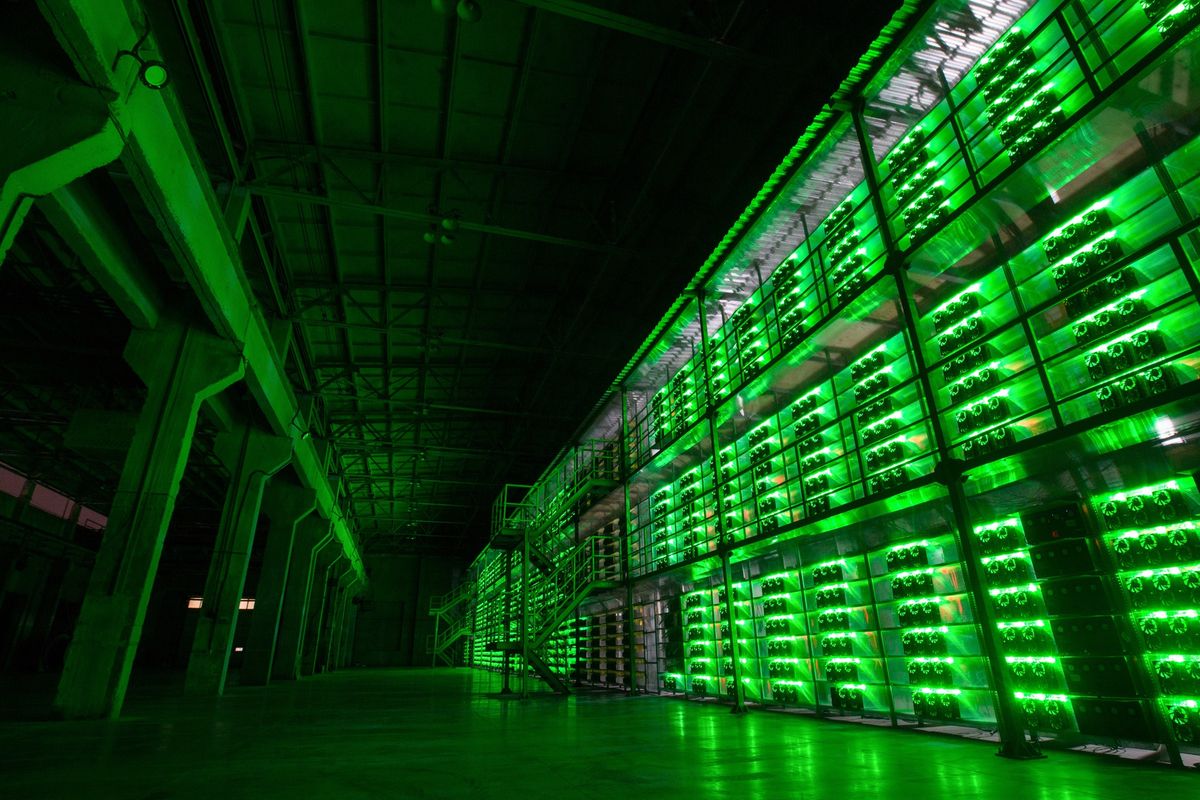Bitcoin Mining Power Reaches Historic High as Profitability Drops
07.04.2025 19:30 2 min. read Alexander Stefanov
Bitcoin's mining network has reached an extraordinary level of computational power, achieving over 1 Zettahash per second (ZH/s) for the first time.
This remarkable milestone highlights both a new peak in network security and a growing financial burden for miners.
The mining network’s hashrate briefly crossed the 1 ZH/s threshold on Friday, an enormous leap from the 1 EH/s level first recorded in 2016.
According to data from Glassnode, this new record surpasses the previous peak of 975 EH/s, which was set at the end of January. However, this achievement arrives at a time of market uncertainty, as Bitcoin’s price has recently dropped by almost 10%, falling to around $77,000. This decline is largely linked to economic instability, exacerbated by the latest round of tariffs imposed by President Trump.
In response to the increased hashrate, Bitcoin’s network difficulty has also seen a significant rise. Over the weekend, the difficulty level surged by nearly 7%, marking the most substantial adjustment since July 2024. The difficulty now stands at a record 121.5 trillion, as reported by Glassnode.
Bitcoin’s protocol automatically recalibrates the difficulty approximately every two weeks, ensuring that the time taken to mine new blocks remains consistent at around 10 minutes, regardless of changes in mining capacity. Over the past 17 adjustments, 14 have resulted in increased difficulty, indicating that despite the challenges miners face, participation continues to grow.
Yet, the financial outlook for miners is increasingly grim. Despite the positive signal of network strength, profitability has taken a hit. The hashprice, which measures earnings per unit of computational power, has plummeted to a historic low of $42.40 per EH/s per day. This downturn is driven by several factors, including increased competition among miners, a stagnant market for transaction fees, and Bitcoin’s recent price stagnation.
Although the higher hashrate suggests strong long-term security for the network, many mining operations, particularly smaller ones with higher operational costs, are under significant pressure to remain financially viable. As the network becomes more competitive, some miners may struggle to keep up, raising concerns about the sustainability of less efficient mining setups.
-
1
Bitcoin to Track Global Economy, Not Dollars, Says Crypto Expert
09.06.2025 18:00 2 min. read -
2
Blockchain Group Bets Big on Bitcoin With Bold €300M Equity Deal
09.06.2025 22:00 2 min. read -
3
BlackRock’s Bitcoin ETF Breaks Into Top 15 Most Traded ETFs of 2025
12.06.2025 18:00 2 min. read -
4
Bank of America Compares Bitcoin to History’s Most Disruptive Inventions
17.06.2025 14:00 1 min. read -
5
Bitcoin on a Path to $1 Million as Wall Street Embraces Digital Gold – Mike Novogratz
14.06.2025 19:00 1 min. read
Bitcoin Averages 37% Rebound After Crises, Binance Research Finds
Despite common fears that global crises spell disaster for crypto markets, new data from Binance Research suggests the opposite may be true — at least for Bitcoin.
Bitcoin Mining Faces Profit Crunch, But No Panic Selling
A new report by crypto analytics firm Alphractal reveals that Bitcoin miners are facing some of the lowest profitability levels in over a decade — yet have shown little sign of capitulation.
Bitcoin Hashrate Declines 3.5%, But Miners Hold Firm Amid Market Weakness
Bitcoin’s network hashrate has fallen 3.5% since mid-June, marking the sharpest decline in computing power since July 2024.
Bitcoin Surpasses Alphabet (Google) to Become 6th Most Valuable Asset Globally
Bitcoin has officially overtaken Alphabet (Google’s parent company) in global asset rankings, becoming the sixth most valuable asset in the world, according to the latest real-time market data.
-
1
Bitcoin to Track Global Economy, Not Dollars, Says Crypto Expert
09.06.2025 18:00 2 min. read -
2
Blockchain Group Bets Big on Bitcoin With Bold €300M Equity Deal
09.06.2025 22:00 2 min. read -
3
BlackRock’s Bitcoin ETF Breaks Into Top 15 Most Traded ETFs of 2025
12.06.2025 18:00 2 min. read -
4
Bank of America Compares Bitcoin to History’s Most Disruptive Inventions
17.06.2025 14:00 1 min. read -
5
Bitcoin on a Path to $1 Million as Wall Street Embraces Digital Gold – Mike Novogratz
14.06.2025 19:00 1 min. read


